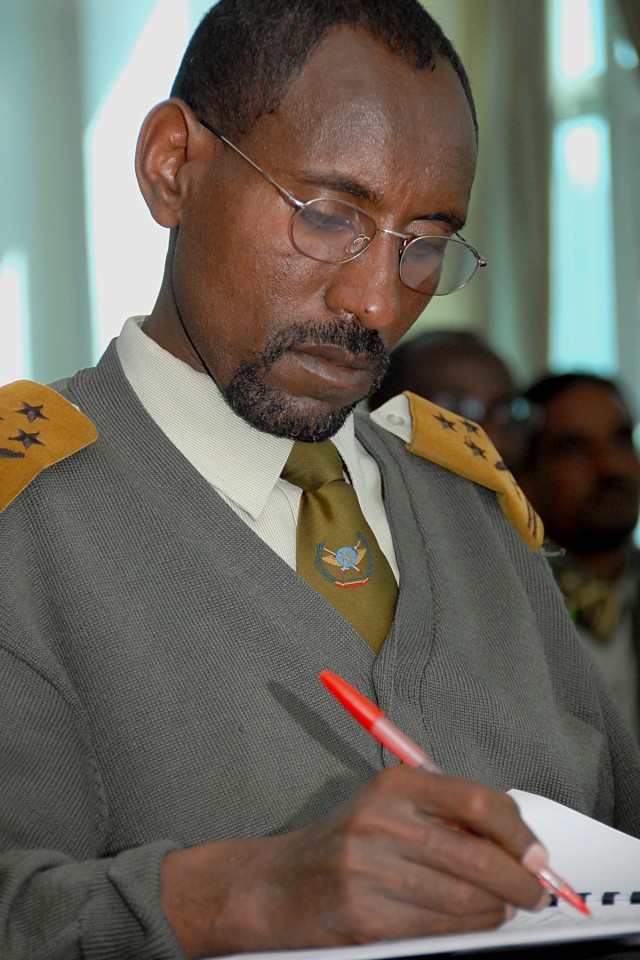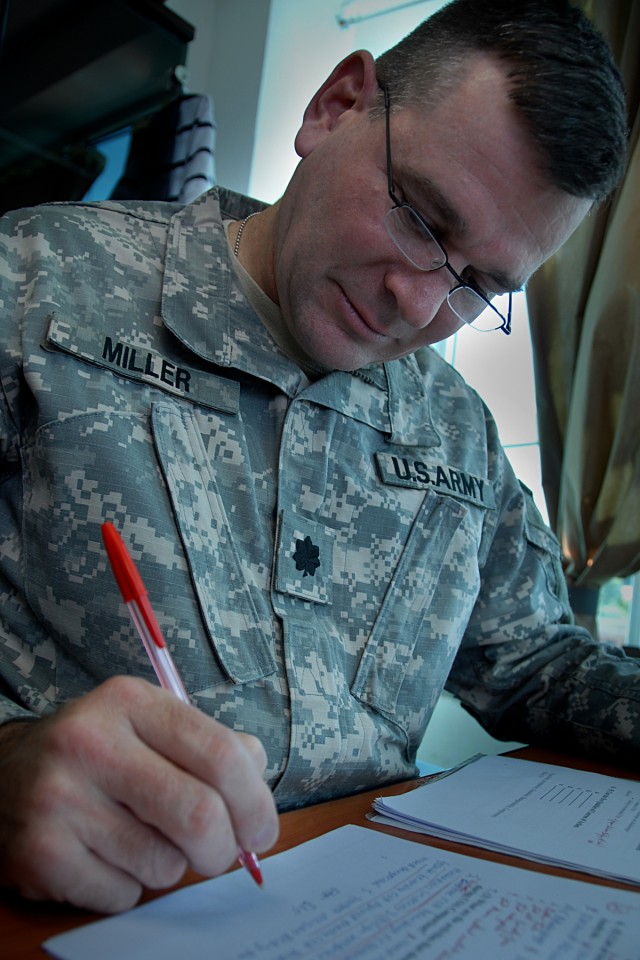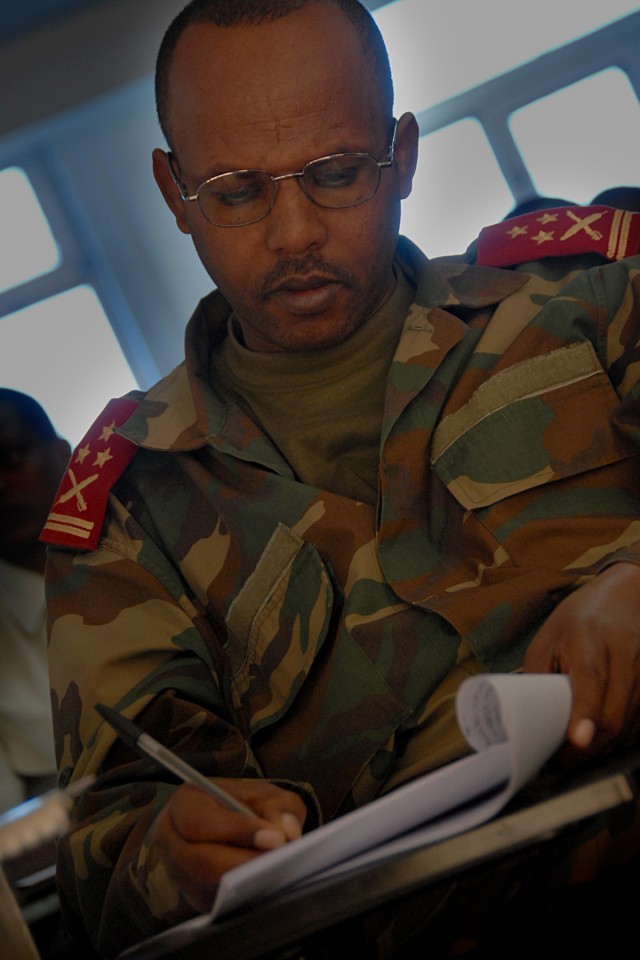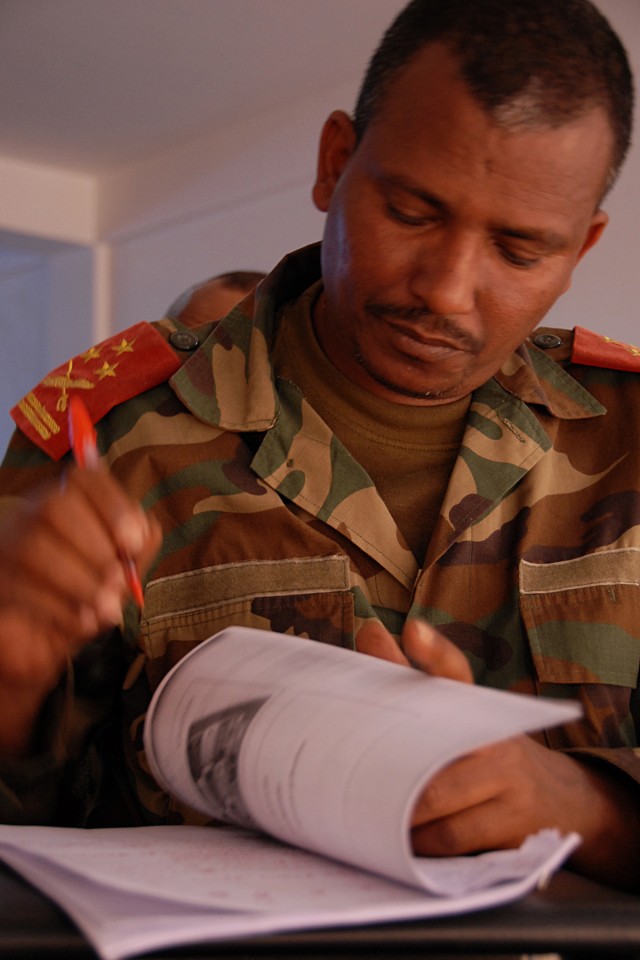AFTER spending a year mentoring Ethiopian officers in Addis Ababa, Ethiopia, Lt. Col. Randy Torno jumped at the chance to extend his tour-remaining in the role he calls the most rewarding job he's ever done.
Now he's tackling his second year at the Ethiopian Defense Command and Staff College, a program that serves as a model for U.S. Army Africa partnerships on the continent.
"With a small investment, the salary of a few colonels, this type of engagement is having a profound effect on the capability of our Ethiopian partners," Torno said. "We're making a difference by helping Ethiopians shape the future of their professional military."
In 2005, the Ethiopian military was looking to build a military education and professional development course for mid-level officers. In the past, Ethiopia sent officers overseas for such courses, to command and staff schools in the U.S., Germany, the U.K. and China, Torno said.
"But what they really wanted was to build their own, internal capability-an Ethiopian-led staff college," Torno said.
The partnership with the U.S. began with civilian contractors, then with active-duty officers from U.S. Army Central Command, which then oversaw the Horn of Africa. The program matured when instructor-qualified Reserve officers, like Torno, were mobilized for yearlong tours to Ethiopia.
Torno arrived at the college in December 2008, when the Ethiopian military decided they wanted a senior-level college, rather than the intermediate levels being taught up to that point. Working closely with the U.S. Naval War College, the Ethiopian college developed a curriculum on military history and strategic planning. A small team of Reserve officers and one Air Force lieutenant colonel teach classes and offer advice to new Ethiopian instructors.
Thick books containing strategic wisdom from Sun Tzu to Carl von Clausewitz line shelves in the American team's third-floor office, where smoked-glass windows offer a hillside view of the Ethiopian capital.
Grading tests at his desk, Lt. Col. Randall Jay Miller, a South Dakota-native, explains how he served as an instructor for both U.S. and Canadian officers, before being called upon for the assignment in Ethiopia. Already, Miller's seen progress, with more than a dozen Ethiopian instructors teaching many courses themselves, he said.
"We've stepped back, taking on more of an advisory role," Miller said. "It's part of our goal, for them to have the wherewithal to run the college on their own."
Lt. Col. Brendt Vitale, an armor officer from Wisconsin, paces through the classroom next door, talking about terrorist tactics in recent years-one of the many topics he covers, from military history and political-military relationships, to discussions on how wars end and post-war operations.
"We look at lessons learned and encourage the students to use analytical skills to apply military strategy and modern concepts to situations," Vitale said. "We talk about both Ethiopian and U.S. experiences."
In October 2009, USARAF began oversight of the partnership program. The course sets a strong example for future engagements on the continent-small teams working low-cost, high-impact missions, allowing partner nations to grow in their own way and develop programs that work for them, Torno said.
USARAF now augments the team's efforts as part of ongoing guest lecture series. Guest speakers-Army officers from both active-duty and reserve units-have offered insight into key topics senior leaders face, from legal issues and public affairs, to civil-military relations and counterinsurgency operations.
During a recent stop in the Ethiopian capital to meet with senior U.S. embassy and Ethiopian leaders, Maj. Gen. William B. Garrett III, commander of USARAF, visited the school, taking part in a class and chatting with Ethiopian instructors and students.
"He offered his knowledge and expertise as a combat brigade commander and an Army service-component commander to classes on air power and tactical logistics," Torno said. "Since then, dozens of students ask when he's coming back, as they have more questions for him."
Ethiopia faces modern security issues, within the region and as a part of a larger partnership of African and international nations, Torno said.
"We're impacting the next two generations of Ethiopia's senior military leadership," Torno said. "Plus, we create a common language for future military cooperation with Ethiopia and strengthen their ability to work as a regional partner."










Social Sharing